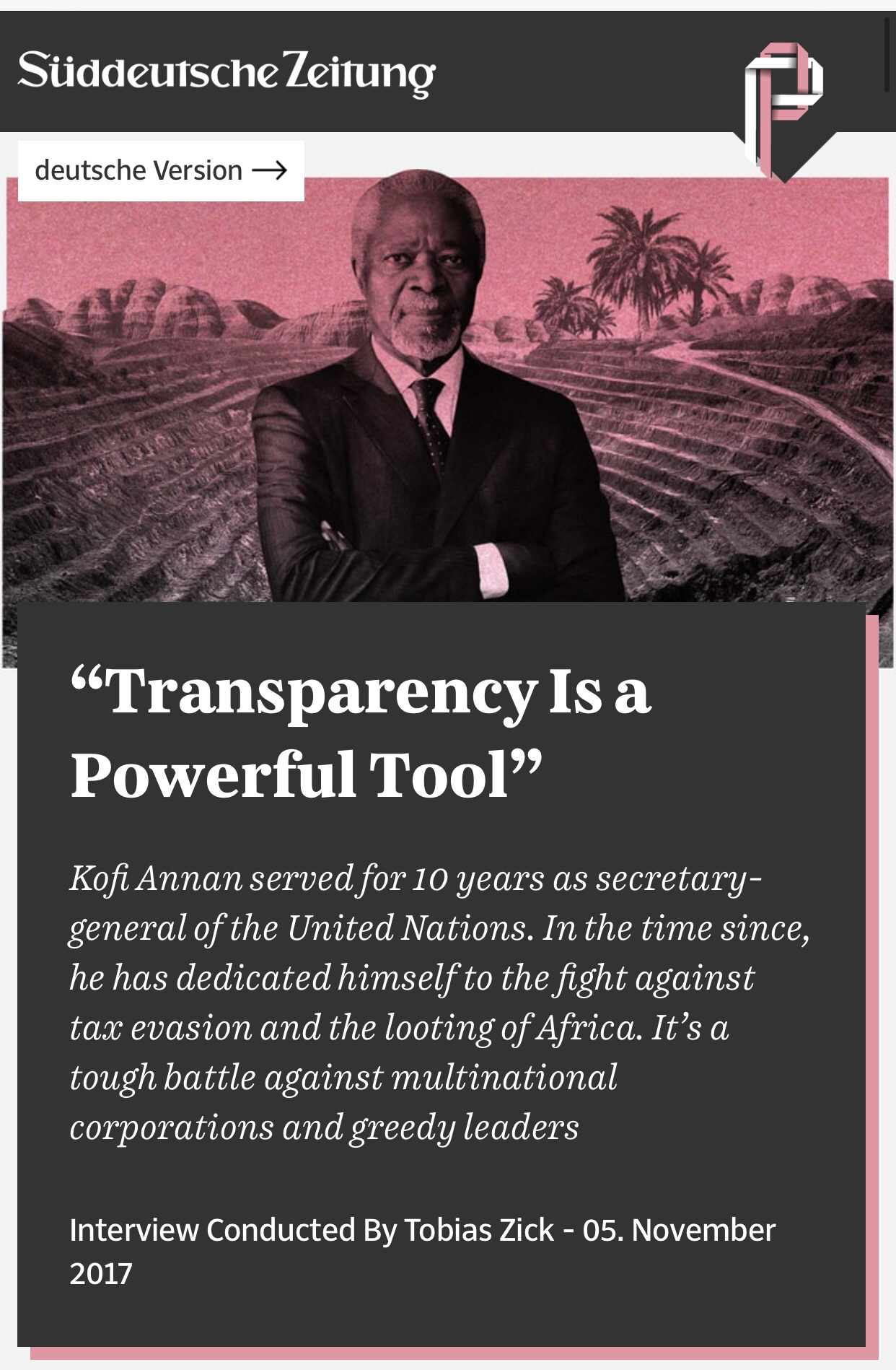“Transparency Is a Powerful Tool”
Kofi Annan served for 10 years as secretary-general of the United Nations. In the time since, he has dedicated himself to the fight against tax evasion and the looting of Africa. It’s a tough battle against multinational corporations and greedy leaders.

Mr. Annan, why is Africa so poor?
Kofi Annan: Africa isn’t poor. It’s a rich continent with many, many poor people. Around $160 billion dollars flow into Africa each year – inflow through transfers made by Africans living outside the continent and in the form of aid assistance. But we lose over $200 billion in the outflow. So, in the end, we are a net transferor of resources out of Africa to the rest of the world.
In your 2013 Africa Progress Report, you shed light on the fact that around $1.36 billion was lost by the Democratic Republic of Congo between 2010 and 2012 in the form of mining rights for copper and cobalt that were sold to firms based on the British Virgin Islands at prices far below their actual value. That would have been enough money to cover Congo’s health and education budgets for two years. How is something like that even possible?
The problem begins with the contracts governments sign with the multinationals. Some countries are so keen to attract multinationals that they offer indefensible concessions to try and attract them. These companies also exploit that. They will tell you, for example: We need to get our investments back before we begin sharing the profits. Sometimes, as part of the concession, they’re not even required to pay taxes for many years, which is really wrong.
In Congo, we have the classic example of the country’s elites, foreign firms and investors colluding to jointly loot the country. Who is primarily to blame for this?
It takes two to tango. The African officials who are signing away their country’s resources at an almost giveaway rate in the expectation that they will get something are really betraying their people and the trust they have put in them. This has a real and direct impact. It takes development and food away from people. The multinationals and the investors also have to know that they have a certain responsibility and obligation. They don’t need a government law or necessarily a strong government in place for them to do what is right – legally, professionally and morally. Sometimes, they even go to the extent of telling you: If we don’t pay the bribe, the competitor will pay it – and take the business away from us. This is something I don’t accept.
What can be done about it?
The only way to stop this sort of game is to push for transparency. Transparency is a powerful tool. We should get the companies and the governments to publish the contracts that have been signed, what the companies earned and how much they paid to the government in taxes. The public also needs to know what the government did with the money.
Here is a link to thw entire article Paradise Papers: Kofi Annan on corruption in Africa
Source: This interview was conducted By Tobias Zick for Suddeutche Zeitung 05. November 2017
You must be logged in to post a comment.